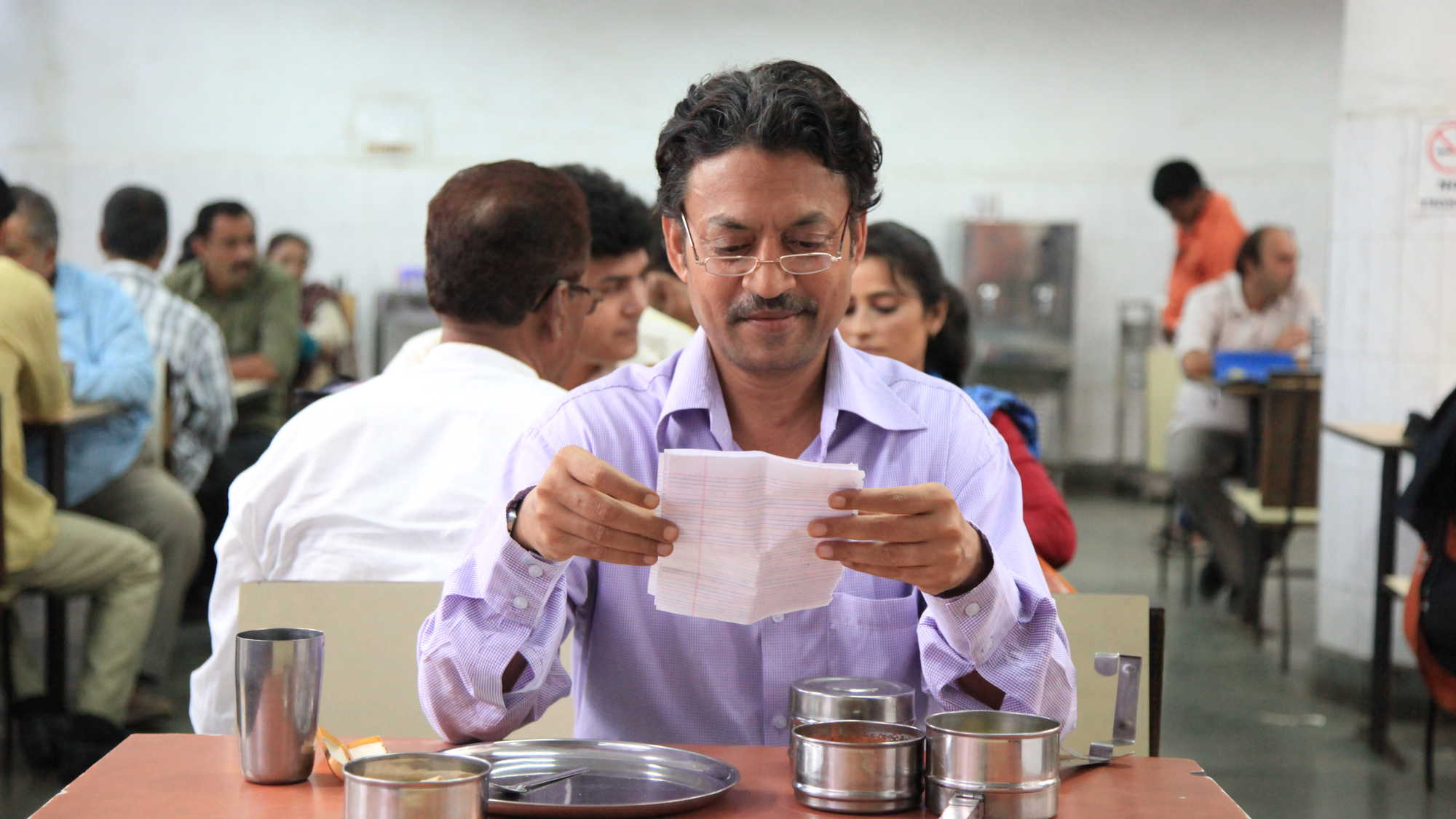Ritesh Batra’s debut feature The Lunchbox is a film about desperate loneliness shared by two strangers—Saajan Fernandez, a grumpy widower who is about to opt for voluntary retirement; and Ila, a housewife and mother who is feverishly trying to win back her husband’s affection. As a contrast to the arid inner worlds of the lead characters, the film is set in the teeming metropolis of Mumbai where one would have to go miles to find solitude—but the director uses the claustrophobia of the city to further separate Saajan and Ila from everything around them and thus add to their isolation.
In Batra’s Mumbai, the extent of Saajan’s loneliness is only realized by the audience, and indeed Saajan himself, when he cannot help himself from peeking into the happy dining room of a neighboring family while he smokes alone on his balcony. The story of loneliness turning into love in urban chaos is certainly not a novel one, but the film’s victories lie in the nuances that the director has managed to infuse in his characters, spaces, and situations.
Also Read: Talvar [2015]: A Wound between Right and Wrong

Batra extracts a career-best performance from Irrfan Khan, and that is saying something. The thespian’s Saajan Fernandez is so perfectly calculated that he is lucid, and yet so effortless that he seems methodical. Erstwhile unknown Nimrat Kaur is a revelation—her Ila is a scene-stealer in every sense of the phrase. A mention must be made of the moments when Khan and Nawazuddin Siddiqui share screen space, for they are pure fire. It is a brave choice on the part of a debutant director to pit these two gifted men against each other and do justice to their talents, but the young director manages it with aplomb.
Batra is successful in delving into the minds of his characters largely due to the cinematography by Michael Simmonds, which effortlessly traverses Mumbai’s urban and domestic topography and creates a space that is both real and personal. The screenplay, which is both poignant and laced with humor, is kept so on screen with some fine editing by John F Lyons which makes for a crisp and enjoyable movie watching experience.
But at the end of the day, ‘The lunchbox’ is an underwhelming film. For over an hour the film promises much more than it eventually delivers. A sudden and unconventional climax, lacking in poetic justice or any kind of balance, leaves one wanting for more in a dark void. The climax has Saajan and Ila rushing on their own trajectories with at least one of them—Saajan—trying to narrow the gap between them; but while there is a hint of hope for a union, too little is ultimately delivered. Nevertheless, the film is more than a valiant effort—it is the introduction of a filmmaker to reckon with on the Indian screen. And if that in itself does not warrant it a watch or two, the fact that it is a rare kind of mature love story, should.


